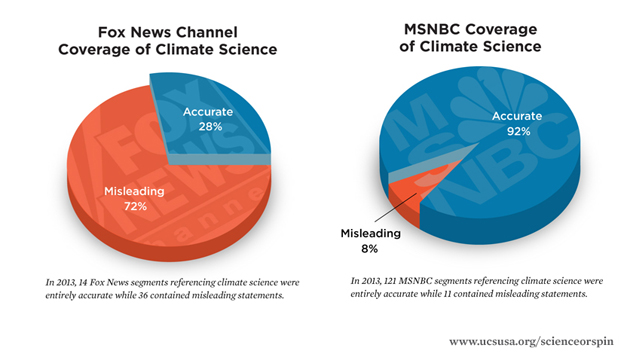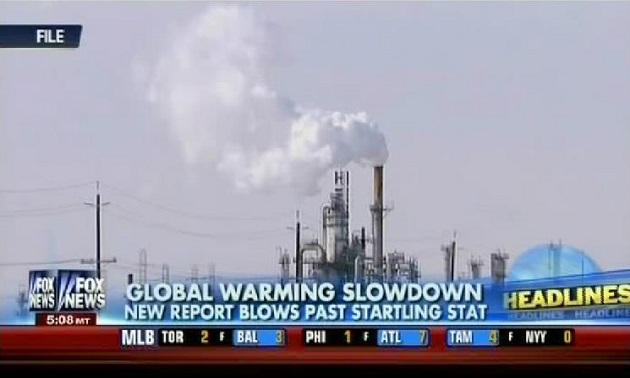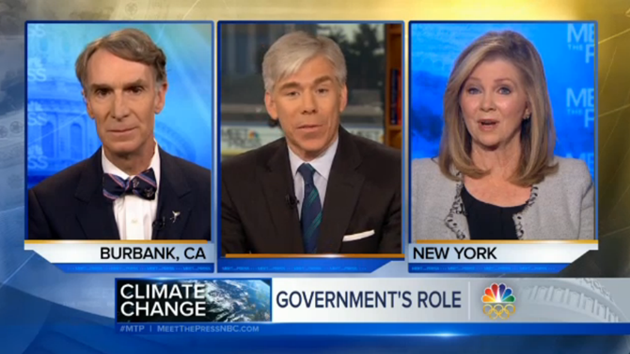
A 2014 debate on NBC's Meet the Press between Bill Nye and Rep. Marsha Blackburn, a climate change denying RepublicanScreenshot: <a href="http://www.nbcnews.com/watch/meet-the-press/flurry-of-storms-a-result-of-climate-change-155284035966">NBC News</a>
Here’s some good news: According to a new study, the major broadcast news networks are covering climate change more than they have in years. Now here’s the bad news: Much of that coverage includes misleading arguments from commentators who reject the scientific consensus that humans are warming the planet.
The new analysis is set to be released Wednesday by the liberal group Media Matters for America. (Disclosure: I used to work there.) Media Matters reviewed 2014 climate coverage from the evening newscasts and Sunday morning talk shows on ABC, CBS, NBC, and Fox Broadcasting Company. All told, the networks devoted 154 minutes to global warming last year—up 19 percent compared to 2013 and far more than any year since 2009. That increase is a big deal. Millions of Americans watch the networks’ evening news shows. And the Sunday shows—ABC’s This Week, CBS’ Face the Nation, NBC’s Meet the Press, and Fox News Sunday—frequently set the agenda for the week’s political reporting elsewhere in the media.
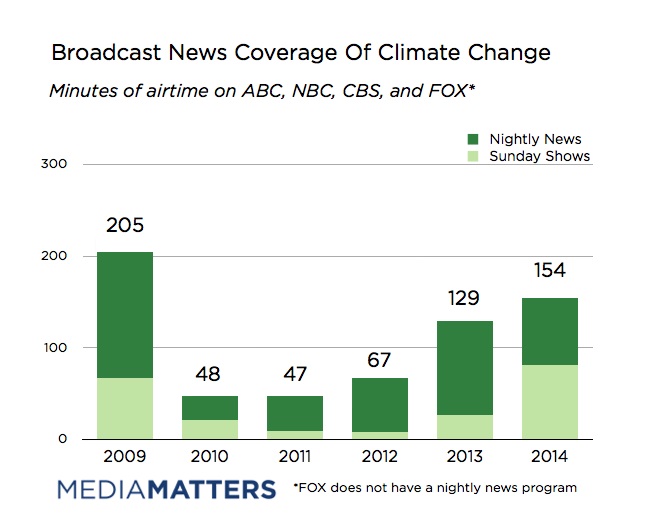
The networks have been under pressure in recent years to pay more attention to the climate. After Media Matters reported last year that the Sunday shows had aired a combined total of just 27 minutes of climate change coverage in all of 2013, a group of Democratic senators sent a letter to network executives calling for a greater focus on the issue. They got their wish: In 2014, the Sunday shows tripled their global warming coverage to a combined total of 81 minutes. Each of the shows devoted about 20 minutes to climate.
Among the evening news shows, CBS led the way with 35 minutes of climate reporting, followed by NBC with 25 minutes, and ABC with just 13 minutes. (Fox’s broadcast network, which is separate from the Fox News cable channel, doesn’t have an evening news program.)
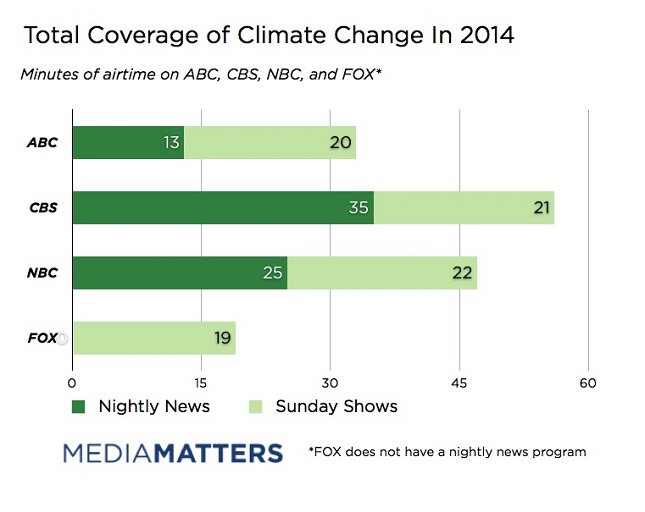
Of course, sheer quantity isn’t the only—or even the most important—measure of climate change reporting. For years, news outlets have been plagued by a tendency to balance the scientific fact that we’re warming the Earth with the very unscientific arguments of those who disagree. That was certainly the case on the Sunday shows last year. Nearly two-thirds of the climate coverage on NBC’s Meet the Press featured discussions that Media Matters classified as “false balance.” That included a debate between science educator Bill Nye and Rep. Marsha Blackburn, a Tennessee Republican who used the opportunity to argue that there is no scientific consensus on global warming. Both Nye and moderator David Gregory pushed back against Blackburn’s claims, but many viewers may have been confused by the segment.
A far worse discussion aired on Fox News Sunday, where Washington Post columnist George Will and Wall Street Journal columnist Kimberley Strassel rattled off a series of climate denial talking points, with little pushback from anyone on the panel. “Of course the climate is changing; it’s always changing,” said Will. “[Global warming] became climate change when you couldn’t prove that there was much global warming anymore…as the temperature didn’t change,” said Strassel. In all, nearly half of the 2014 climate coverage on both Fox News Sunday and ABC’S This Week featured false balance, according to Media Matters. Of the four Sunday shows, only CBS’s Face the Nation managed to avoid false balance entirely.
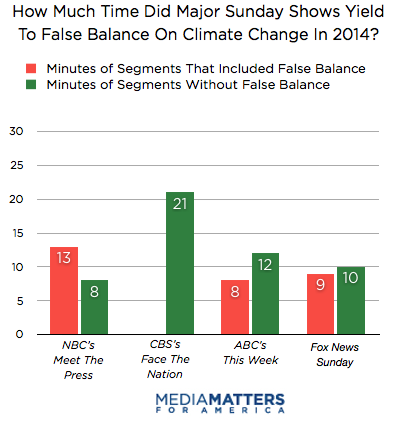
“The networks continue to provide a platform for climate science deniers—despite the fact that 97 percent of climate scientists agree human activities are causing global warming,” said Andrew Seifter, the director of Media Matters’ climate and energy program, in a statement. “We hope that the networks will better inform their viewers by putting an end to this false balance in 2015.”



